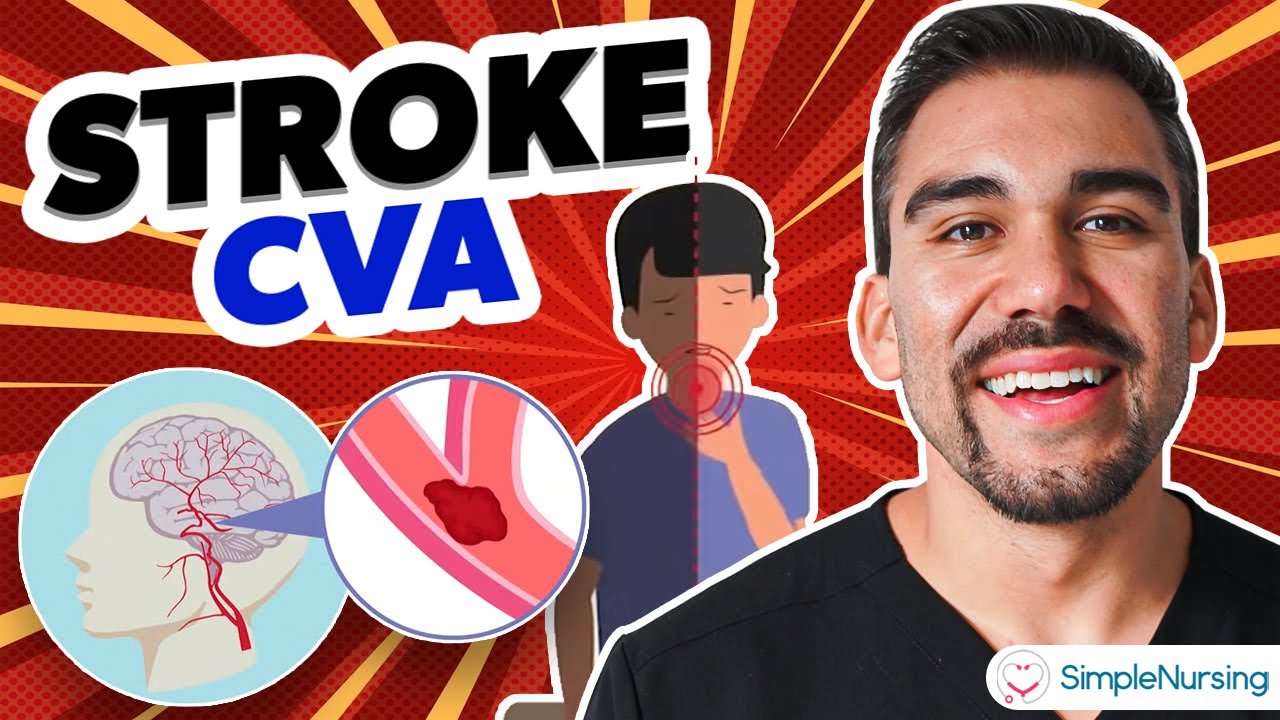Recognizing Warning Signs and Symptoms of a Stroke | In Case of Emergency | Mass General Brigham
Summary
TLDRApproximately 800,000 strokes occur annually, with 25% affecting individuals under 65. The video emphasizes the importance of quick action using the FAST acronym: Facial drooping, Arm weakness, Speech difficulty, and Time to call 911. It advises against giving medications like aspirin, which can worsen the condition, and highlights the critical role of emergency responders and physicians in managing stroke symptoms. Dr. Demarcus Bayman underscores the urgency of rapid response to minimize permanent damage and preserve life and abilities.
Takeaways
- 🚨 Strokes are a serious medical condition affecting nearly 800,000 people annually.
- 👵 A significant 25% of strokes occur in individuals under the age of 65.
- 🔑 Use the FAST acronym to quickly identify stroke symptoms: Facial drooping, Arm weakness, Speech difficulty, and Time to call for help.
- ⏰ Time is of the essence; acting quickly can prevent additional permanent damage.
- 🚑 Call 9-1-1 immediately if you suspect someone is having a stroke.
- 🚫 Do not administer any medications, including aspirin, as it can potentially worsen the condition.
- 🚫 Ensure the person with stroke symptoms does not drive, eat, drink, or sleep.
- 📝 Note the exact time when symptoms began; this is vital information for medical professionals.
- 👩⚕️ Emergency dispatchers can provide guidance on CPR if needed.
- 👉 Remember, anyone can have a stroke, and rapid response is crucial for saving lives and preserving abilities.
- 👨⚕️ Dr. Demarcus Bayman emphasizes the importance of acting fast in stroke emergencies.
Q & A
How many strokes occur annually according to the script?
-Nearly 800,000 strokes occur every year.
What percentage of strokes happen to people under the age of 65?
-About a quarter of all strokes happen to people under the age of 65.
What is the acronym FAST used for when assessing stroke symptoms?
-FAST stands for Facial drooping, Arm weakness, Speech difficulty, and Time, which is a reminder to act quickly.
What should one do if they suspect a stroke?
-If you suspect a stroke, call 9-1-1 immediately.
Why is it critical to act quickly in a stroke emergency?
-Acting quickly is critical because every minute that passes can mean additional permanent damage to a person's health and ability.
What is the role of an emergency dispatcher in a stroke situation?
-An emergency dispatcher can coach you through the process of CPR if you are unfamiliar with it and the stroke victim may require it.
Why is it important to note the time of symptom onset in a stroke?
-Noting the time of symptom onset is critical as it provides important information for emergency responders and attending physicians.
What should you avoid giving to a person with stroke symptoms?
-You should avoid giving a person with stroke symptoms any medications, including aspirin, as it can potentially cause further harm depending on the kind of stroke they are suffering.
What actions should be avoided with a person experiencing stroke symptoms?
-You should never let a person with stroke symptoms drive, eat, drink, or go to sleep.
Who can experience strokes and why is rapid response important?
-Strokes can happen to anyone at any age, and a rapid response is critical to preserve someone's life and abilities.
Who is the speaker in the video and what additional resource does he offer?
-The speaker is Dr. Demarcus Bayman, and he offers more emergency care videos for further information.
Outlines

هذا القسم متوفر فقط للمشتركين. يرجى الترقية للوصول إلى هذه الميزة.
قم بالترقية الآنMindmap

هذا القسم متوفر فقط للمشتركين. يرجى الترقية للوصول إلى هذه الميزة.
قم بالترقية الآنKeywords

هذا القسم متوفر فقط للمشتركين. يرجى الترقية للوصول إلى هذه الميزة.
قم بالترقية الآنHighlights

هذا القسم متوفر فقط للمشتركين. يرجى الترقية للوصول إلى هذه الميزة.
قم بالترقية الآنTranscripts

هذا القسم متوفر فقط للمشتركين. يرجى الترقية للوصول إلى هذه الميزة.
قم بالترقية الآنتصفح المزيد من مقاطع الفيديو ذات الصلة

Työtapaturmien taloudelliset vaikutukset

Populasi Lansia Capai Rekor, Jepang Kekurangan Tenaga Kerja

Patna High Court Strikes Down Hike in Bihar’s Reservations | Know What Happened in Detail | UPSC

Stroke CVA (Cerebrovascular Accident) Hemorrhagic, Ischemic NCLEX RN & LPN NURSING

Seeking ‘better solutions,’ some veterans eye psychedelics to treat PTSD

Making ammonia
5.0 / 5 (0 votes)
